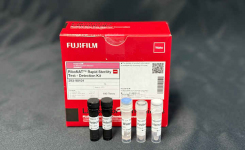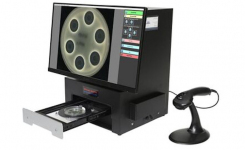
MAST CRYOBANK™ is a microvial cryopreservation system comprising chemically treated beads covered with a unique cryogenic preservative solution within a cryovial. This allows the formation of microvial culture collections for laboratory accreditation and research purposes, providing a cost-effective alternative to lyophilisation, repeated subculture and purchase of commercially available control organisms.
MAST CRYOBANK™ is simply stored in boxes that are designed to fit multi-compartment freezer racks, with each box containing 64 tubes. Each cryovial is conveniently colour coded for categorisation and is easily located using the organism reference grid that is printed on the lid of each box.
An 18-well CRYOBLOCK is also available to prevent thawing and ensure micro-organism viability when working with cryovials at low temperature.
Cryovials provide long-term storage and preservation of bacteria and fungi, and are suitable for use in all laboratories. They are ideal for:
- Simple and convenient storage of valuable isolates.
- ATCC/NCTC control strains for quality control.
- Cultures sent to reference laboratories.
- Important clinical isolates e.g. blood cultures.
- Multi-resistant organisms.
- Research projects/training.
For more information regarding this product please contact sales@mastgrp.com.























